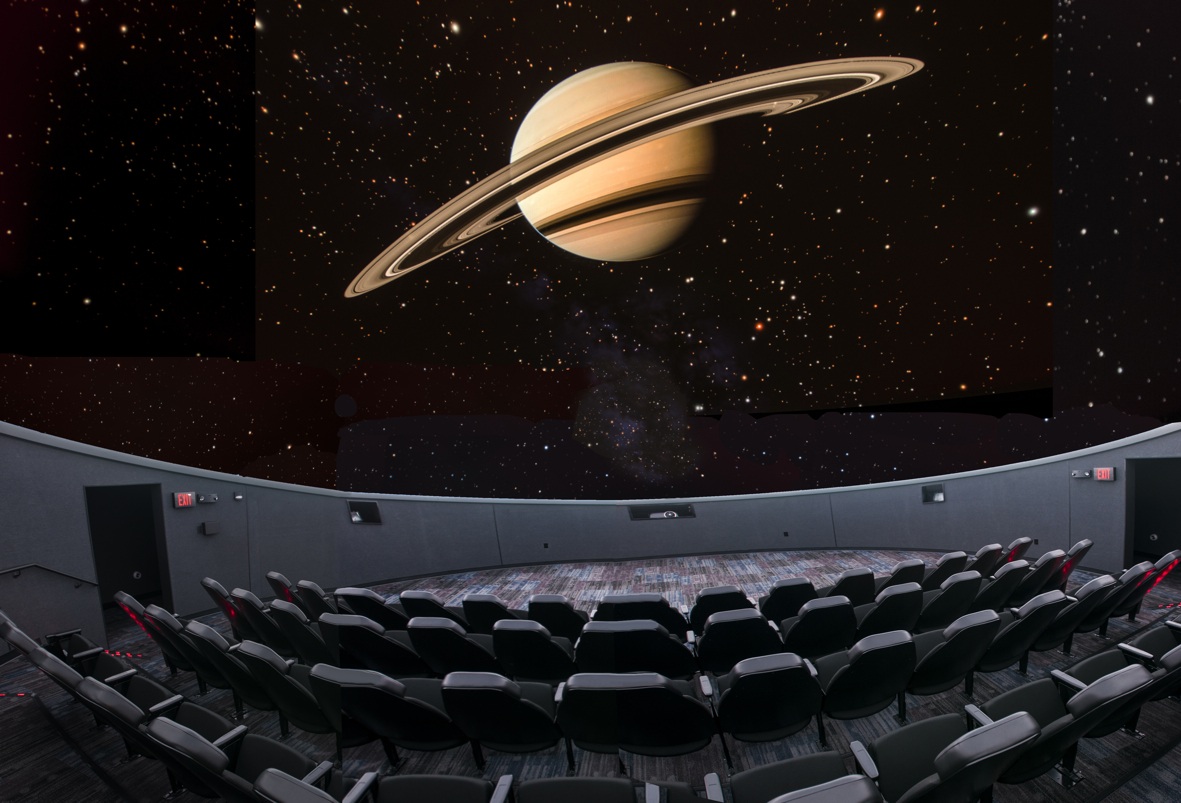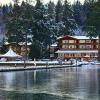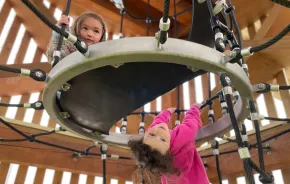There are few things more awe inspiring than looking up at a star-filled night sky. Around the Puget Sound, though, skies are often cloudy or polluted by city lights.
Happily, South Sound area families can gaze into galaxies far, far away just by heading to Lakewood. Pierce College’s Fort Steilacoom Campus is now home to the Science Dome, the only digital planetarium in the South Puget Sound, and shows are presented every weekend in its 58-seat auditorium.
The planetarium, which opened in January 2013, offers public shows including a children’s show for ages 3–8, as well as an all-ages production. My 8-year-old and I recently tried out one of each.
Science Dome children's show: The children’s show is an interactive presentation with lots of opportunities to wiggle and make noise. During the program we saw on moons, children counted down to blast off and kicked their feet to propel our imaginary rocket around space.
Kids are also invited to get out of their seats periodically for hands-on activities. Henry loved stepping in play dough to simulate leaving a footprint on the moon and feeling ice to imagine the cold crust on one of Neptune’s moons. The highlight, though, was looking up at the sky. The images move so you really feel as if you’re in space -- or at least close to it.
Though this show is designed for children, it isn’t “dumbed down.” My son and I both learned a lot about stars, the sun and the moons (I’ll admit I didn’t even know how many planets had moons)! The presenter, Jessie, told me that they design all productions themselves. The 40-minute length was perfect for the young audience on our visit, and at $3 per child (adults are free), the price was right, too.
Science Dome all-ages show: The all-ages production is a full hour plus. It begins with a live presentation under the dome’s night sky, followed by one of a rotating series of videos (currently, there are five that rotate). We saw the one on black holes. While the adults and older children seemed mesmerized, my active 8-year-old was antsy by the end, and I think he and I both had a case of “Information overload” with this particular show. As lecturer Jennifer put it, even our best scientists don’t fully understand black holes. I’m looking forward to going back to see the "Lamps of Atlantis" with my 11-year-old.
The Science Dome also hosts special public events once a quarter and is available for school field trips and similar outings. See a full schedule of shows.
If you go ...
Tickets: Purchase in advance online, through Eventbrite, or at the door. It’s cash only at the door, so if you want to use plastic, go the online route. The children’s program is $3 for kids and free for grown-ups; the all-ages show is $6 adults, $3 for children.
When: Find a current schedule here. Children’s shows are currently at 12:30 or 2 p.m. on Saturdays. All-ages shows are at 7 p.m. on Fridays and 3:15 p.m. on Saturday. Weekday shows may be added in the summer.
Tips: Doors to the outside are kept open, so you’re never in total darkness. Still, it’s probably not a good outing for children with sensory issues or severe motion sickness.
More astronomy fun around the Sound
South Sound
Tacoma Astronomical Society hosts monthly free nights at Pierce College, with programs year round and viewing through telescopes on clear nights.
Starry Hill Observatory and Planetarium, in Eatonville, offers star gazing and star parties to schools and other groups. They need to be scheduled.
Seattle area
The Museum of Flight offers periodic programming on astronomy topics and an excellent, permanent exhibit on space exploration.
Jacobsen Observatory on the University of Washington campus offers star viewing on first and third Wednesdays, April through October.
UW Planetarium offers educational shows on Fridays for groups.
Pacific Science Center's Willard Smith Planetarium hosts multiple shows a day. (They can fill up quickly; reserve your spot as soon as you get to the Science Center.)
Seattle Astronomical Society holds public star parties monthly at Green Lake and Paramount Park in Shoreline. Read Jennifer Johnson's review of a star party.
Bainbridge and Kitsap
Bainbridge Island: Readers can attend events put on by the Battle Point Astronomical Association.
Kitsap area: The Pacific Planetarium has 28 seats around a fixed dome and offers public shows on first and third Fridays.
Further afield
Goldendale Observatory: If your summer adventures take you near Goldendale in southern Washington state, make sure to stop at the observatory, where you can gaze through one of the country’s largest public telescopes!
Cosmos: Finally, for a true armchair adventure, tune in to see a newly launched reprisal of the popular series, Cosmos. Astronomer Neil Degrasse Tyson is the host. It airs on Fox affiliates.
Maegen Blue is the editor of SoundsFunMom.com, a blog for South Sound families. She lives in Puyallup with her husband and two boys.










